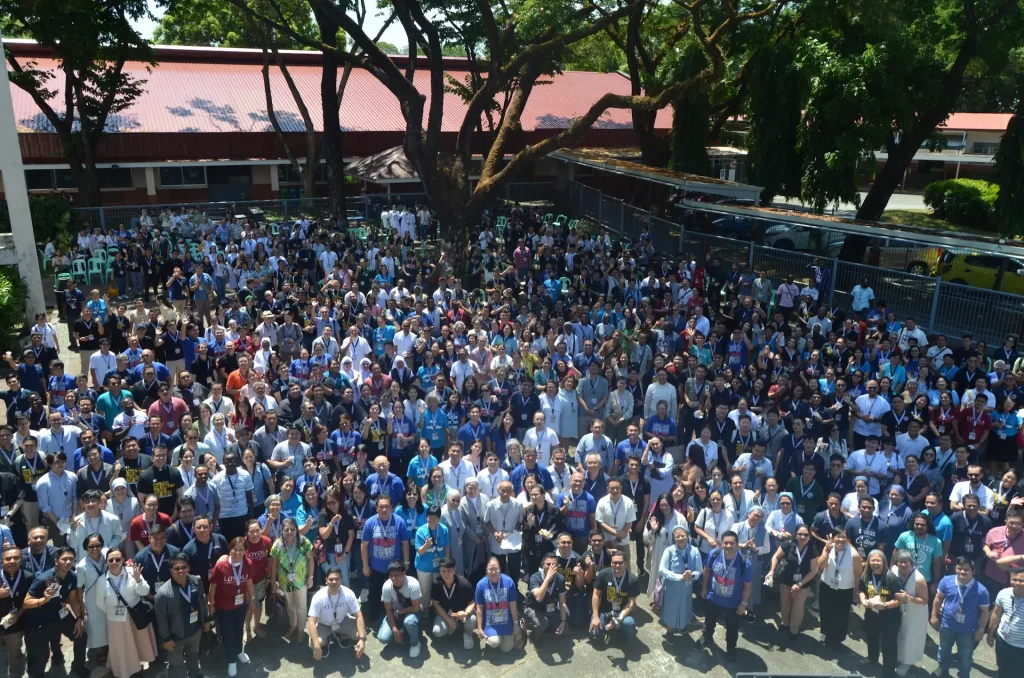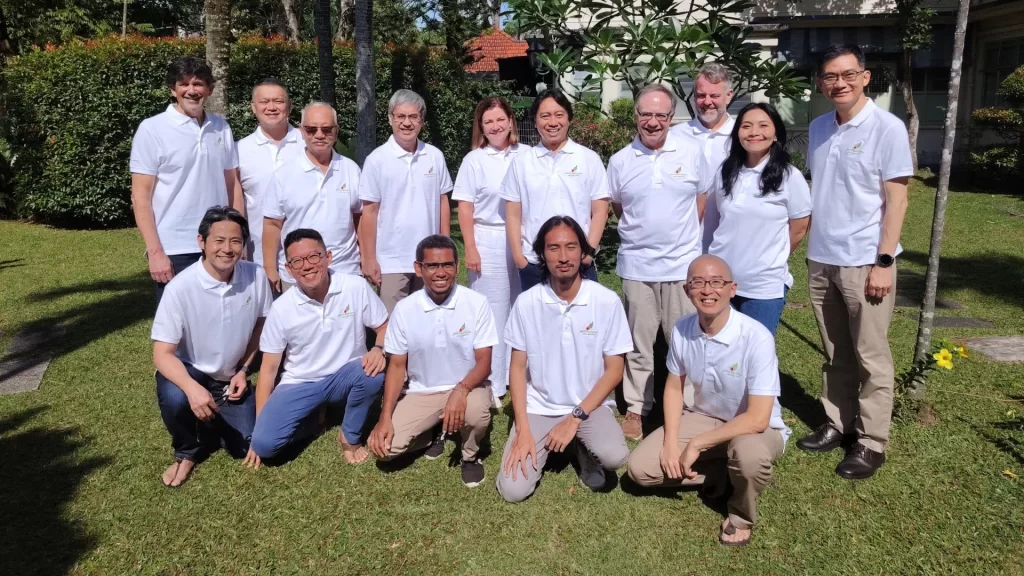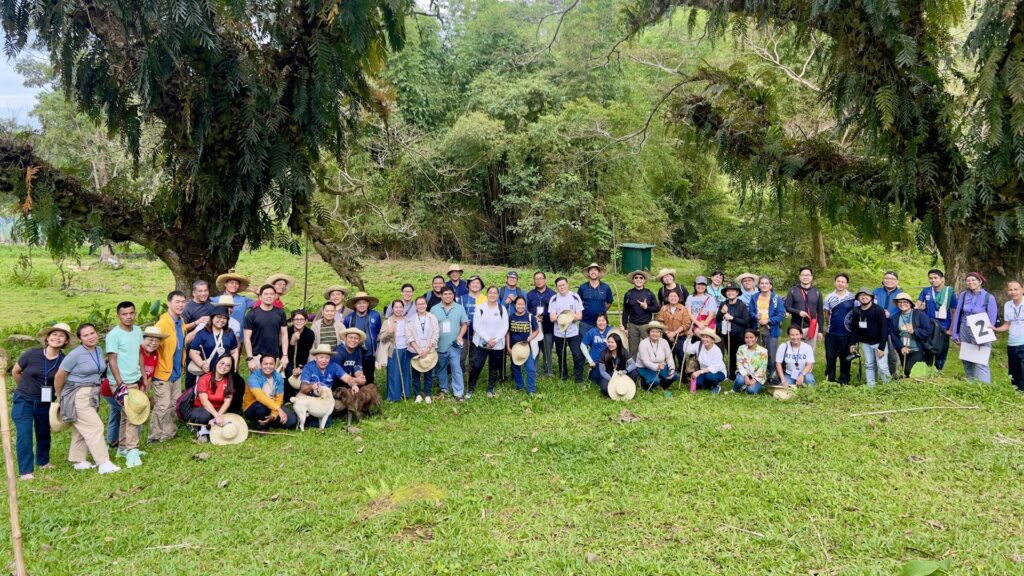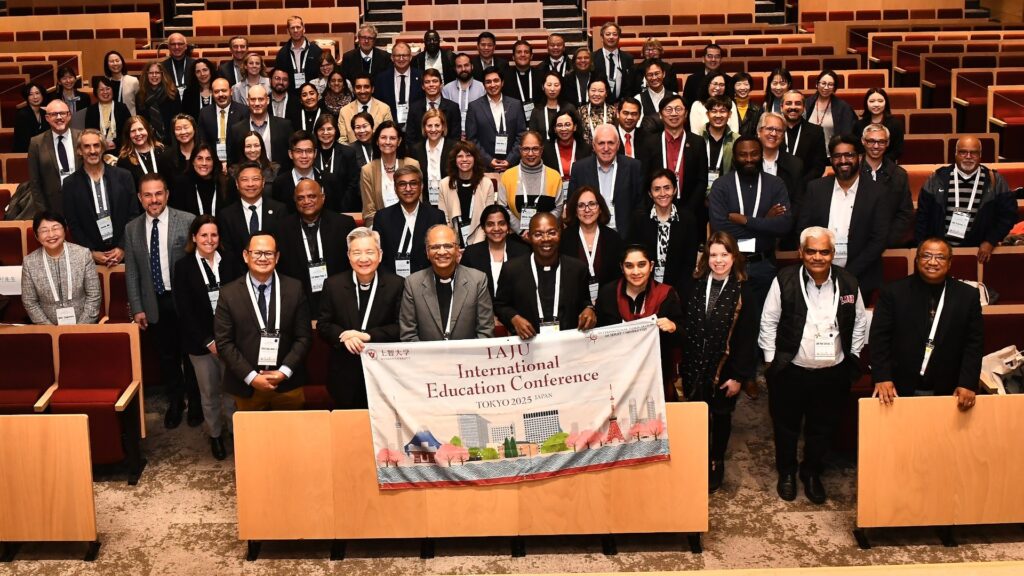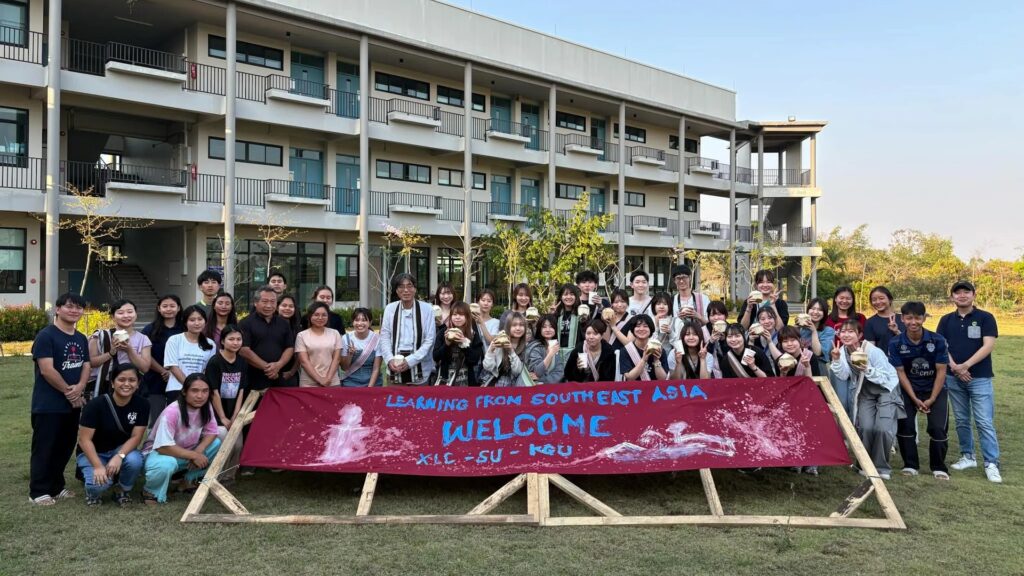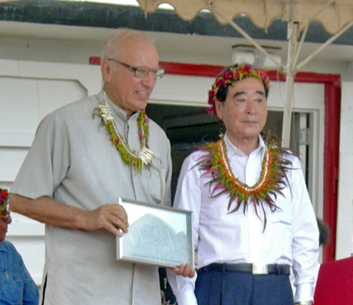
Fr Ken Hezel (l) and Mr Mabuchi (r)
This only Jesuit school in Micronesia had been contributing to the region with several outstanding leaders in many fields from the very early stages of its existence. To acknowledge such important contribution of the school towards the region and to do an act of charity in the celebration of its 100th founding anniversary, Mabuchi Corporation from Japan sent some of its employees to renovate the building in June and July 2008 for free of charge. The same corporation had built the school’s bomb-proof main building in 1938 as a Japanese Navy’s radio and communication centre in the region. The company’s president, Mr. Mabuchi, himself came to re-dedicate the building on October 9. Among the distinguished guests for the occasion were Fr Ken Hezel, Regional Superior of Micronesia, some leaders of the local Church, Chuuk State’s Governor, the State’s Chief Justice, the representative of the Federated States of Micronesia’s President, the Japanese ambassador to Micronesia, and a local traditional chief. One common note about the school by some of the aforementioned guests was that although the original purpose of the building was for war, the Jesuits and their friends had turned it into a means of peace and development in the region. Hopefully, the school would continue to be a learning centre for many good children who would lead their nations in the future according to God’s most holy will. (Contributor: Sch Wilbert Mireh)
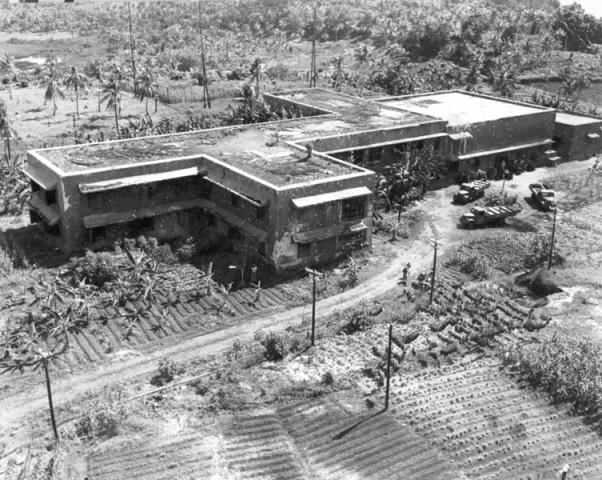
The main building just after WWII and before it was turned into Xavier High School.
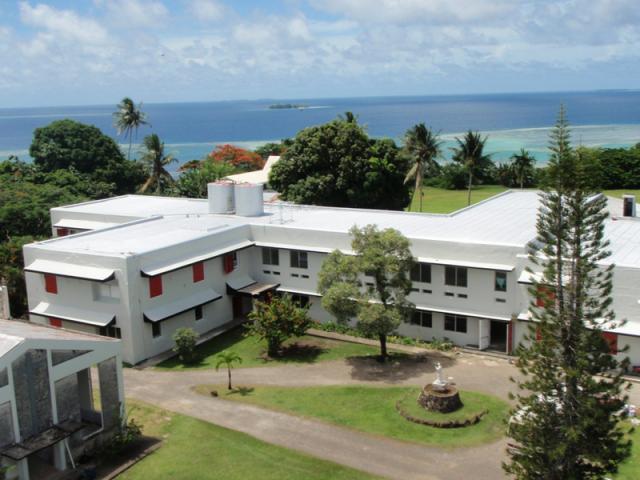
Xavier High School’s main building after the Mabuchi’s renovation.


